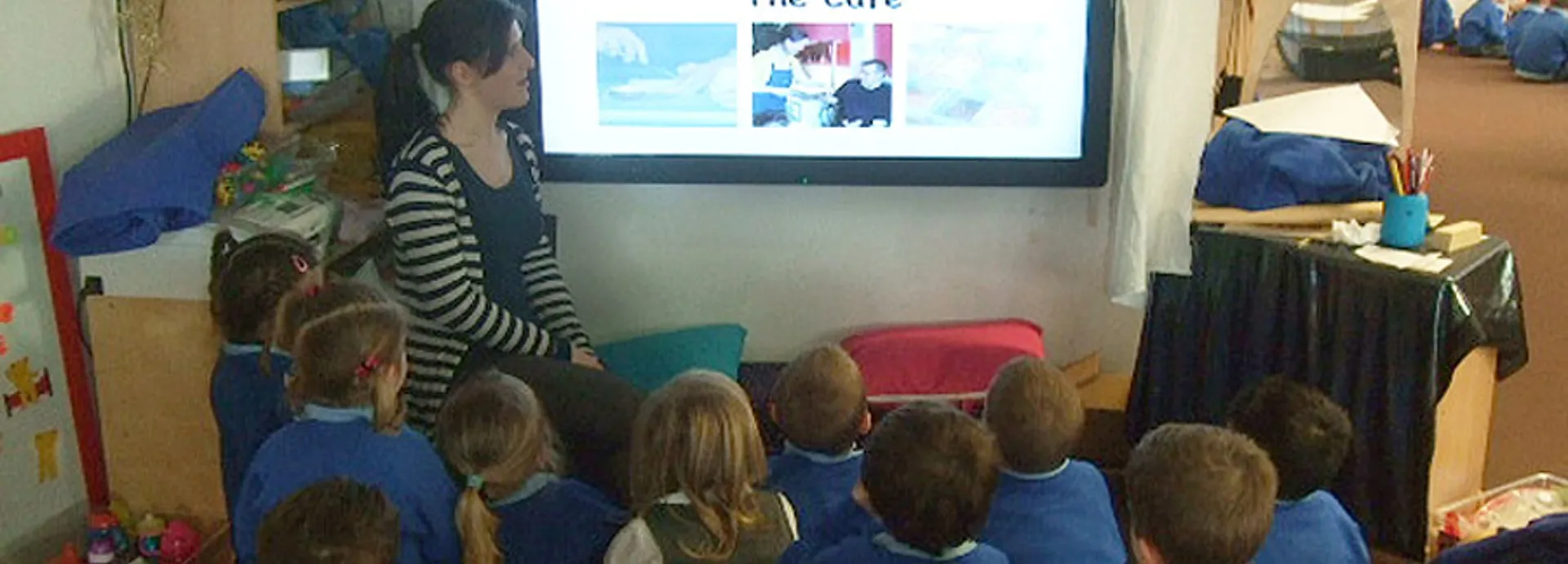March 2014
PGCE Immersion Weeks
Read time: approx 3 mins
Trainee teachers at UCB devised a programme of creative learning opportunities for young children in partnership with Birmingham schools.
More than 50 PGCE students planned and delivered assemblies, performances, interactive displays and role play scenarios, engaging with nursery and primary youngsters on imaginative projects. At the same time, the students collated key evidence for their professional development journals.
The varied activities, aimed at nurturing children’s love of learning and intellectual curiosity, were launched during a new UCB teaching and professional development project called Immersion Weeks. Immersion Weeks is the idea of UCB assistant dean Dr Marjorie Jeavons and allows students to contribute practical lesson time towards the pool of 120 days they must complete in the classroom prior to graduation.
The individual activities were planned with in-put from school mentors and were conducted in close consultation with partnership schools. Although numeracy and literacy could form part of the thematic project, students were advised that the core subjects should not form the main focus of activities.
Early Years lecturer Dr Nicola Smith said: “The idea was to give students the chance to do something a bit different and to be creative. We wanted them to immerse themselves in one particular subject area. Students already do a lot of English and maths because they are core skills. But we wanted them to choose a topic outside those two subjects.”
Lecturers challenged students to devise a project with a “wow” factor, to showcase their individuality and differentiate themselves from other graduates. Students with a particular talent – say in the performing arts or sport – were encouraged to tap into those skills to deliver the most creative and effective learning environments as possible.
The trainees rose to the challenge and got children practising and performing in special assemblies, building role play areas, making colourful mosaics and outdoor art projects, music compositions, film making and many more activities. Parents were invited to some of the performances.
One student got children to write an alternative ending to Roald Dahl’s classic story Charlie and the Chocolate Factory – and then film the action using iPads and Lego. Incidentally, in the children’s re-imagined conclusion, the hero decides he is too young to take over the management of the factory – and opts instead for a new car and a house.
Nicola said: “The students really enjoyed Immersion Weeks. They felt the project gave them an opportunity to try out their ideas and skills and the schools really appreciate it.
“The schools loved the new initiative because some of the projects were things they had wanted to do for some time but had not had the time, or staff, to do.
“The head teachers liked the imagination the students showed and felt Immersion Weeks made a lasting impact on the school environment.”
Comments from head teachers included:
- “The student’s subject knowledge has improved greatly through the research involved in creating the display.”
- “She has gone out of her way to include different experiences for the children.”
- “She has worked really hard to produce a creative role play area which should very effectively support the children’s learning.”
- “The Immersion Weeks Project is one of the best things students have done in school.”
